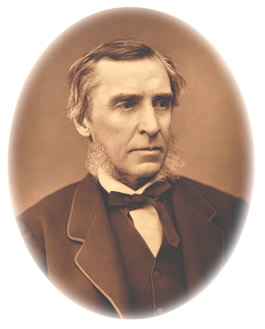Online Exhibition: Famous Victorians
Historians
The Victorian age demonstrated an increasing in interest in history, which had first become popular during the age of their heroes and predecessors, the Jacobeans. The rise of interest in religion during the later Victorian period was translated into an interest in the religious debates and disputes of their ancestors, especially during the Reformation and Civil Wars. The antiquarianism of earlier periods led to the foundation of archaeology as a science.
James Anthony Froude (1818-1894)
Froude was educated at the prestigious Westminster school and at Oriel College, Oxford. He went on to become a fellow at Exeter College, Oxford. As a supporter of the high church Oxford Movement he helped Cardinal John Newman to write Lives of the Saints, and he became a deacon in 1845 but he later became influenced by the ideas of Thomas Carlyle (he subsequently wrote a biography of Carlyle,) and abandoned this religious position. In early Victorian times university posts were held by single religious clergymen so the college made him resign from his job. He lived by writing articles for journals, including Frazer's Magazine and The Westminster Review.
Soon he began to write history books and they proved remarkably popular. He rejected the cold scientific style of history writing of his predecessors, and said that history was drama and should be written as such. He wrote history which focused on the personalities of the
main protagonists. He wrote in an exciting way, but was not always accurate, and an author called Freeman constantly attacked his work in the press.
Froude's view of history stemmed from his idea that the Reformation was a great force for good which spread progress and enlightenment throughout Europe, and Henry VIII was his hero. In addition to writing books he worked as an editor on Frazer's Magazine. Essex Libraries hold over fifty different editions of his books, as well as two biographies of the historian.

James Anthony Froude. From Men of Mark Gallery of Portraits p15